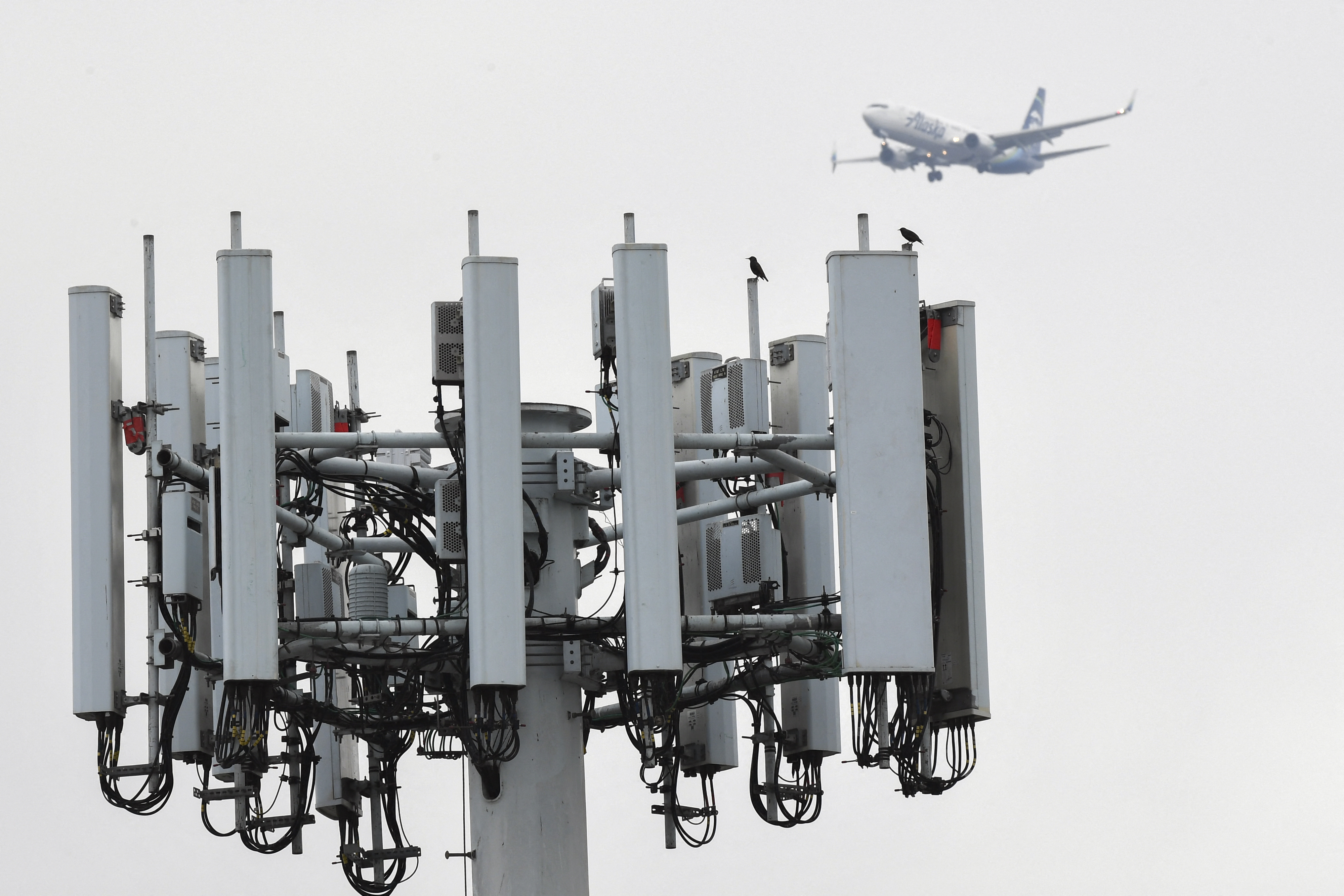The daily business briefing: January 20, 2022
Airlines cancel some flights but avoid major disruption from 5G rollout, the Nasdaq falls into correction territory, and more


- 1. Airlines cancel some flights but avoid major 5G disruption
- 2. Nasdaq's latest plunge puts it in correction territory
- 3. Boris Johnson says U.K. will ease COVID restrictions
- 4. Starbucks drops vaccination requirement after Supreme Court decision
- 5. U.S., U.K. to begin talks on lifting Trump steel, aluminum tariffs
A free daily email with the biggest news stories of the day – and the best features from TheWeek.com
You are now subscribed
Your newsletter sign-up was successful
1. Airlines cancel some flights but avoid major 5G disruption
Airlines canceled about 320 flights into and from the United States on Wednesday as AT&T and Verizon rolled out high-speed 5G service, but an agreement by the wireless carriers to scale back around airports helped prevent the widespread disruptions airline CEOs feared. International carriers that use wide-body Boeing 777s and other Boeing aircraft switched to different planes or canceled flights after the Federal Aviation Administration and Boeing warned that 5G could interfere with equipment that measures altitude. The reduced rollout around airports was a temporary fix to provide time for the industry and the government to negotiate a lasting solution.
2. Nasdaq's latest plunge puts it in correction territory
The Nasdaq dropped by 1.1 percent on Wednesday, leaving it down by 10.7 percent from the all-time closing high it hit in November. That puts the index into a clear correction, or a decline of at least 10 percent. The S&P 500 and the Dow Jones Industrial Average fell by 1 percent. Wall Street has struggled in January as investors dumped technology stocks on concerns that rising interest rates will hurt high-growth companies. The tech-heavy Nasdaq has been hit hardest. U.S. stock rose early Thursday after Wednesday's sell-off. Futures tied to the Nasdaq were up by 0.9 percent at 6:30 a.m. ET. Futures tied to the Dow and the S&P 500 were up by 0.5 percent and 0.6 percent, respectively.
The Week
Escape your echo chamber. Get the facts behind the news, plus analysis from multiple perspectives.

Sign up for The Week's Free Newsletters
From our morning news briefing to a weekly Good News Newsletter, get the best of The Week delivered directly to your inbox.
From our morning news briefing to a weekly Good News Newsletter, get the best of The Week delivered directly to your inbox.
3. Boris Johnson says U.K. will ease COVID restrictions
British Prime Minister Boris Johnson said Wednesday that his government would ease coronavirus restrictions in England. The so-called Plan B rules were put into place to curb the COVID-19 wave driven by the fast-spreading Omicron coronavirus variant, and included mask requirements, guidance for working from home, and vaccination passports. "Our scientists believe that the Omicron wave has now peaked nationally," Johnson said, explaining the new policy. The announcement of the lifting of the tighter restrictions came as Johnson faces calls to resign and broad criticism over a series of parties at his office during lockdowns.
4. Starbucks drops vaccination requirement after Supreme Court decision
Starbucks has scrapped its coronavirus vaccine mandate following the Supreme Court's rejection last week of President Biden's vaccinate-or-test requirement for big companies. The coffee company told workers in a Jan. 4 letter that they would have to get vaccinated by Feb. 9 or submit to weekly COVID-19 testing to comply with guidance from the Occupational Safety and Health Administration. After the Supreme Court decision, the company said it still encouraged employees to get vaccinated but was dropping the mandate, although it would continue to follow local coronavirus regulations. "We respect the Court's ruling and will comply," John Culver, chief operating officer and group president for North America at Starbucks, told workers in a Tuesday message.
A free daily email with the biggest news stories of the day – and the best features from TheWeek.com
5. U.S., U.K. to begin talks on lifting Trump steel, aluminum tariffs
The United States and the United Kingdom said in a joint statement Wednesday that they had agreed to start negotiations on lifting tariffs imposed by former President Donald Trump on British steel and aluminum. U.S. Commerce Secretary Gina Raimondo, U.S. Trade Representative Katherine Tai, and U.K. Trade Minister Anne-Marie Trevelyan said the two countries were aiming for a quick deal that "strengthens their democratic alliance" and benefits their steel and aluminum industries. Trump in 2018 imposed the tariffs — 25 percent on foreign steel, and 10 percent on aluminum — citing national security concerns. Britain and other U.S. allies called the move outrageous. President Biden last year made a deal with the European Union that dropped tariffs on EU metals up to import quotas, keeping taxes on anything exceeding them.
Harold Maass is a contributing editor at The Week. He has been writing for The Week since the 2001 debut of the U.S. print edition and served as editor of TheWeek.com when it launched in 2008. Harold started his career as a newspaper reporter in South Florida and Haiti. He has previously worked for a variety of news outlets, including The Miami Herald, ABC News and Fox News, and for several years wrote a daily roundup of financial news for The Week and Yahoo Finance.
